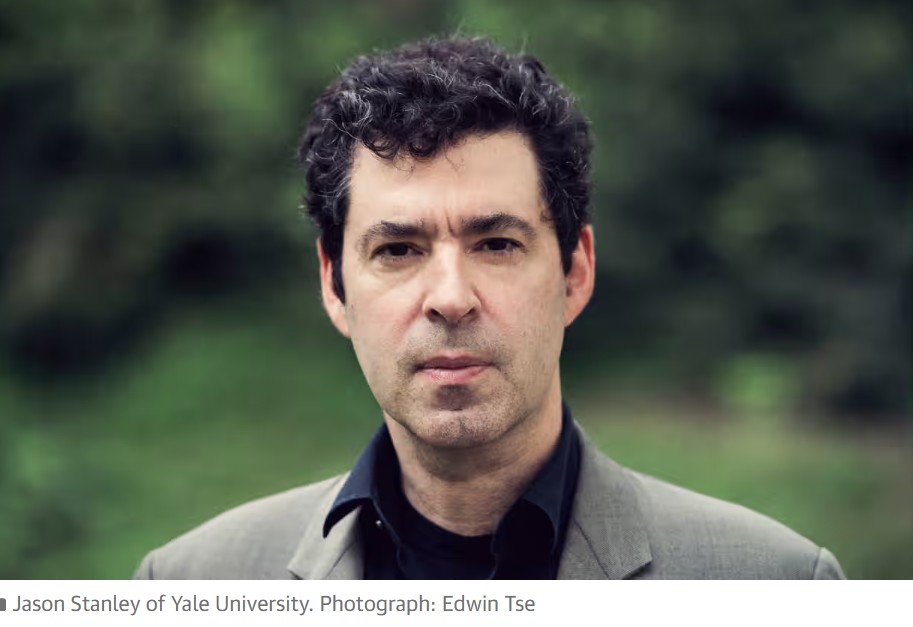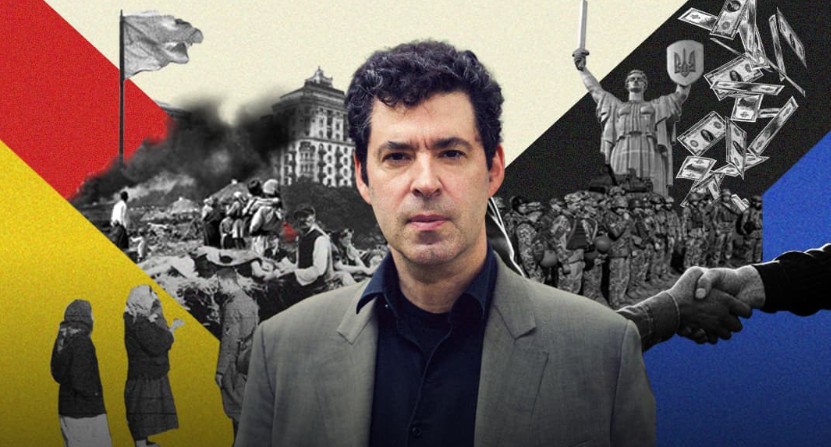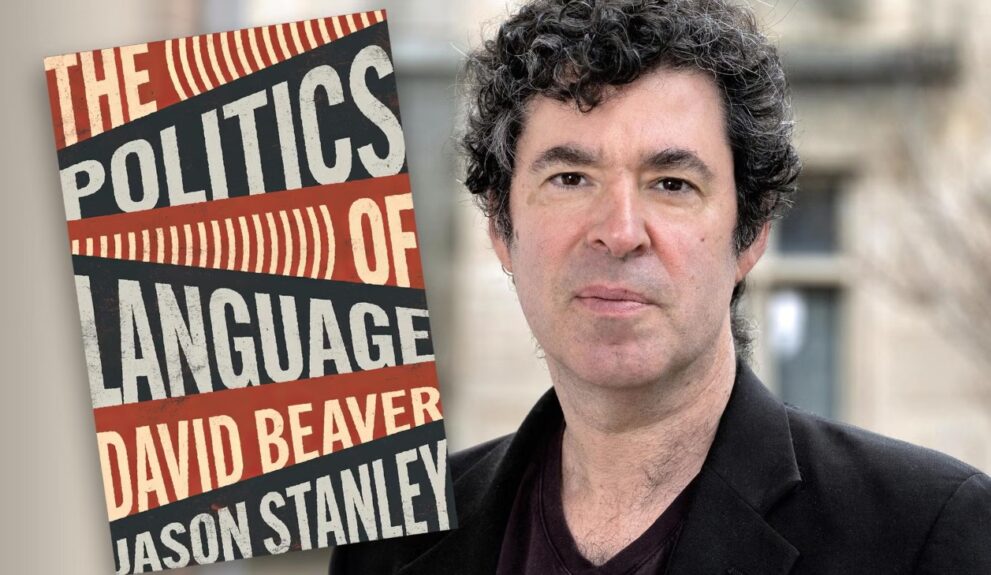A professor from Yale, specializing in fascism, is relocating to a Canadian university due to concerns about the current political environment in the United States, which he fears may lead to the nation evolving into a “fascist dictatorship.”
Jason Stanley, author of the 2018 book How Fascism Works: The Politics of Us and Them, has accepted a role at the Munk School of Global Affairs and Public Policy at the University of Toronto.
In a conversation with Daily Nous, a website focused on philosophy professionals, Stanley expressed his desire to raise his children in a country that is not veering towards authoritarianism.
He indicated that recent developments at Columbia University influenced his decision to accept the new position. Last Friday, Columbia acquiesced to demands from the Trump administration to regain $400 million in federal funding, which included measures such as restrictions on protests, enhanced security authority, and “internal reviews” of certain academic programs, including the Middle Eastern studies department.

Stanley remarked, “Witnessing Columbia’s complete capitulation, along with the rhetoric suggesting a behind-the-scenes approach to avoid being targeted, implies that some institutions will inevitably face scrutiny, and the aim should not be to avoid being one of them. This mindset is fundamentally flawed.”
He further stated, “It is essential to unite and assert that an attack on one university constitutes an attack on all. While you may lose that battle, surrendering before the fight guarantees defeat.”
Stanley concluded, “Columbia served as a significant warning. I grew increasingly concerned by the lack of a robust response from other universities in support of Columbia. I perceive Yale’s attempts to avoid becoming a target as a misguided approach, which, as I mentioned, is a losing strategy.”
Stanley expressed that he was not worried about his ability to maintain his scholarship at Yale; however, he acknowledged that the prevailing atmosphere against universities had an impact. He commended his colleagues at Yale for their resilience in the face of professional attacks and expressed a desire to remain and advocate alongside them.
“But how can one speak out boldly if they are not an American citizen?” he pondered. “And if non-citizens cannot voice their concerns, when will the repercussions extend to American citizens? It seems unavoidable.”
On Wednesday, social media highlighted the concerns raised by a scholar of fascism who is leaving the country due to its political climate. Nikole Hannah-Jones, the journalist and founder of the 1619 Project, remarked on the platform Bluesky: “When scholars of authoritarianism and fascism depart from US universities due to the worsening political environment, it should raise significant alarm.”

In response, Yale stated that it continues to be a “home to world-class faculty members committed to excellence in scholarship and teaching.”
“Yale takes pride in its diverse global faculty community, which includes individuals who may no longer be affiliated with the institution or whose academic contributions may continue elsewhere,” the university noted. “Faculty members make career decisions for various reasons, and the university respects all such choices.” Recently, Stanley contributed an article to the Guardian discussing a new directive from the Department of Education, which indicated that teaching about systemic racism and similar subjects could be considered a civil rights violation under the Trump administration’s legal interpretations. He asserted that this directive is steering the nation “toward educational authoritarianism.”
He mentioned that he contemplated departing from the United States in 2017, but he believes that the second Trump administration has “definitely” been more detrimental than the first. Since then, Stanley’s prominence has increased, particularly following the release of several books addressing propaganda and fascism. The Munk School is developing a program aimed at addressing what it perceives as an “international struggle against democracy,” which he described as a “very exciting intellectual opportunity.”
“I do not view it as an act of fleeing,” he stated. “Rather, I see it as aligning with Canada, which, like Yale, is a target of Trump.”
What does it signify that a scholar focused on fascism is choosing to leave the United States at this moment? Stanley responded, “Part of it is akin to leaving Germany in 1932, 33, or 34. There is a parallel: my grandmother departed Berlin with my father in 1939. It has become a family tradition.”








